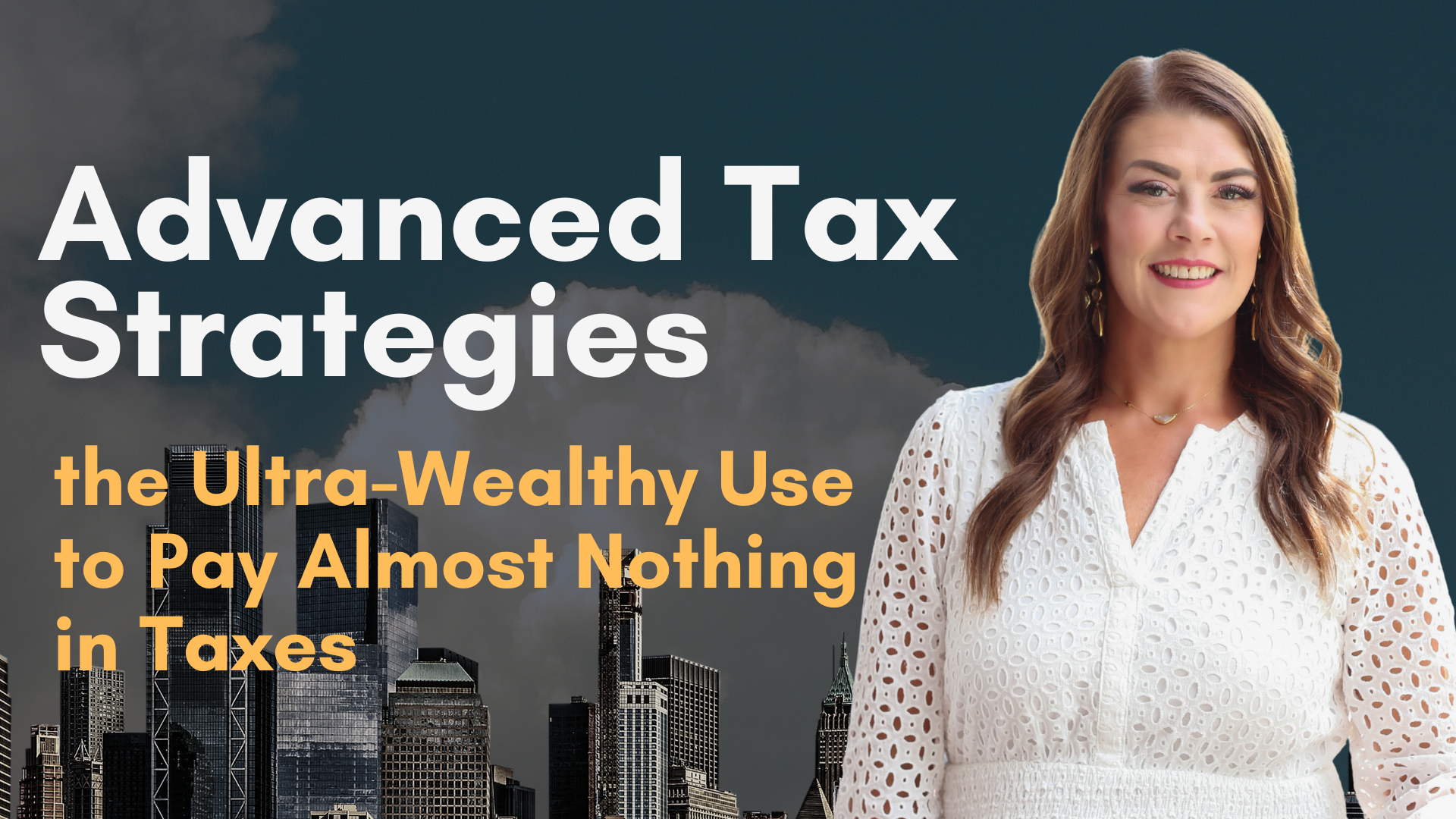What if I told you the ultra-wealthy aren’t just making more money — they’re keeping more of it?
They use advanced tax strategies that allow them to legally reduce or even eliminate taxes while building long-term wealth. These aren’t basic deductions or tax hacks. These are the same techniques that private wealth managers charge tens of thousands of dollars to implement for their elite clients.
In this post, we’ll break down three powerful, completely legal tax strategies anyone with the right knowledge and structure can use — even if you’re not a millionaire (yet).
By the end, you’ll understand:
✅ How oil & gas investments can offset your active income
✅ How to use a private family foundation to control your giving and get huge tax deductions
✅ How the Augusta Rule creates tax-free rental income for business owners
Let’s dive in.
1️⃣ Oil and Gas Investments – Turn Active Income into Tax Savings
Oil and gas investments are one of the few remaining ways to create active losses that can offset your W-2 or business income.
Most investments (like real estate or stocks) create passive losses — which can only offset passive income. But oil and gas is different. The IRS categorizes it as an active business, allowing investors to use those losses to offset salary, business profits, or consulting fees.
💡 Example
Let’s say you earn $500,000 per year and pay around $150,000 in taxes.
If you invest $100,000 into an oil and gas project that produces a $100,000 first-year loss, you can use that loss to reduce your taxable income — potentially saving $30,000–$40,000 in taxes immediately.
The Depletion Allowance
Here’s where it gets better: investors get a 27.5% depletion allowance — a yearly deduction based on gross income from the investment, regardless of your initial amount invested.
For instance, if your investment earns $30,000 in a year, you can deduct $8,250 every single year as long as the well produces income.
Pro Tip: Oil and gas investments carry risk, but when done with reputable operators, the tax advantages often outweigh the risk. Consider allocating a small percentage of your portfolio for this strategy.
2️⃣ Private Family Foundations – Control Your Charity and Create Huge Deductions
When most people donate to charity, they write a check and move on.
The wealthy? They do it differently.
They use Private Family Foundations to gain control over their charitable giving, reduce taxes, and build a lasting family legacy.
🧾 How It Works
-
You create a Private Family Foundation.
-
You contribute funds (up to 30% of your adjusted gross income) and receive an immediate tax deduction.
-
You only need to donate 5% of the assets each year to qualified charities — the rest can stay invested and grow tax-free.
You control when, how, and where to give — and your investments continue to grow within the foundation.
💡 Real Example
One of Tiffany Phillips’ clients owed around $200,000 in taxes.
Instead, they contributed $600,000 to a private foundation, got a $600,000 deduction, and completely eliminated their tax bill.
Over five years, that foundation grew to $900,000, and they distributed about $45,000 per year to meaningful causes.
Bonus: You can involve family members in foundation work, pay reasonable salaries for legitimate services, and create a long-lasting philanthropic legacy.
3️⃣ The Augusta Rule – Earn Tax-Free Income from Your Own Home
The Augusta Rule is one of the simplest, yet most underutilized tax strategies available.
It originated in Augusta, Georgia, when local homeowners rented out their homes during the Masters Golf Tournament — and Congress decided that rental income from your primary home (for up to 14 days per year) is completely tax-free.
💼 How Business Owners Can Use It
If you own a business, you can rent your home to your business for legitimate purposes — such as board meetings, client events, or planning sessions.
Your business gets a deduction, and you receive tax-free rental income.
💡 Example
If you charge your business $800 per day for 12 board meetings a year, that’s $9,600 in tax-free income annually.
✅ Your business deducts the expense.
✅ You receive the income tax-free.
✅ Everyone wins — except the IRS.
Just make sure to:
-
Document every event
-
Charge fair market rates
-
Keep records of attendees and business purposes
-
Never exceed 14 days per year
💼 Combining All Three Strategies for Maximum Tax Efficiency
The ultra-wealthy don’t rely on just one strategy — they combine them.
Example:
A client earning $2 million per year and paying $600,000 in taxes implemented all three:
-
Private Foundation: $400,000 contribution → immediate deduction
-
Oil & Gas Investment: $200,000 invested → $160,000 first-year deduction
-
Augusta Rule: $14,400 in tax-free income
Result: Taxable income dropped from $2M to $800K.
Tax bill dropped from $600K to $240K — saving $360,000 in one year.
When used together, these strategies compound tax savings and build long-term wealth — not just short-term deductions.
⚠️ Important Considerations
Before diving in, remember:
-
These strategies are best suited for individuals earning $200,000+ per year.
-
Private foundations require annual filings and administrative upkeep.
-
Oil and gas carry investment risk.
-
The Augusta Rule requires legitimate business use and documentation.
Always consult a CPA or tax strategist who understands advanced planning. The IRS pays attention to high-level tax moves — so compliance and documentation are non-negotiable.
📘 Final Thoughts
The ultra-wealthy don’t pay less tax because they’re cheating — they pay less because they understand the system and use it strategically.
By leveraging the Oil & Gas Deduction, Private Foundations, and the Augusta Rule, you can begin using the same tax framework that separates millionaires from billionaires.
Want to go deeper?
👉 Grab your copy of Your Biggest Expense at yourbiggestexpense.com
👉 Or watch the full video above for a step-by-step breakdown.
Start today — because keeping more of what you earn is the smartest investment you can make.
❓ Frequently Asked Questions (FAQs)
Q1: Are these tax strategies legal?
Yes. All three — Oil & Gas Investments, Private Foundations, and the Augusta Rule — are 100% legal under IRS code when properly documented and implemented.
Q2: Can small business owners use these strategies?
Absolutely. While they’re more effective for high earners, small business owners can start with the Augusta Rule and gradually explore other options as income grows.
Q3: How much do I need to invest in oil and gas to benefit?
Most qualified projects start around $50,000–$100,000, but the immediate tax benefits often justify the cost for higher earners.
Q4: Can I pay my family through my private foundation?
You can pay reasonable salaries for legitimate foundation work (such as administration or event planning), but not for personal expenses.
Q5: What happens if I rent my home for more than 14 days under the Augusta Rule?
If you exceed 14 days, the income becomes taxable. Keep it within the limit for full tax-free benefits.





